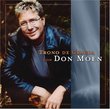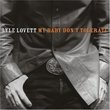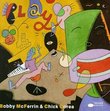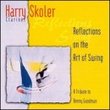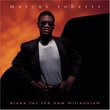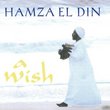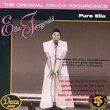| All Artists: Taj Mahal & The Hula Blues Title: Hanapepe Dream Members Wishing: 5 Total Copies: 0 Label: Tone Cool Release Date: 6/10/2003 Genres: Blues, International Music, Pop, Latin Music Styles: Contemporary Blues, Electric Blues, Slide Guitar, Africa, Caribbean & Cuba, Afro-Cuban, Latin Music, Reggae, Latin Pop, Latin Christian Number of Discs: 1 SwapaCD Credits: 1 UPCs: 699675117320, 4015698981520 |
Search - Taj Mahal & The Hula Blues :: Hanapepe Dream
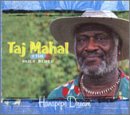 | Taj Mahal & The Hula Blues Hanapepe Dream Genres: Blues, International Music, Pop, Latin Music
Though he earned earliest acclaim as a blues traditionalist, Taj Mahal is no purist. Instead, he's an eclectic artist who finds common spirit with the blues in a multicultural array of styles. This album's acoustic arrange... more » |
Larger Image |
CD DetailsSynopsis
Amazon.com Though he earned earliest acclaim as a blues traditionalist, Taj Mahal is no purist. Instead, he's an eclectic artist who finds common spirit with the blues in a multicultural array of styles. This album's acoustic arrangements lace the ukuleles, slack and steel guitars of Hawaii (where Taj lived for 15 years) with the airier strains of flute and saxophone and the lilt of the African kalimba. Within this follow-up to 1998's Sacred Island, the music island-hops from the Pacific to the Caribbean, as a blend of reggae and calypso influences highlight "Great Big Boat," "King Edward's Throne," and "African Herbsman." Taj and his Hula Blues band additionally apply their transformational power to a sinuously propulsive rendition of Bob Dylan's "All Along the Watchtower," as well as providing syncopated renewal for traditionals "Black Jack Davy" and "Stagger Lee" plus Mississippi John Hurt's "My Creole Bell." Straying furthest from bedrock blues, the lovely Hawaiian balladry of "Moonlight Lady" shimmers like moonbeams dancing across the ocean ripples. --Don McLeese Similar CDsSimilarly Requested CDs
|
CD ReviewsA cool drink of summer Jerome Clark | Canby, Minnesota | 07/04/2003 (5 out of 5 stars) "Taj Mahal has never done an album so good-natured and accessible as Hanapepe Dream. It's a perfect summer record, full of high spirit and sunny attitude -- not to mention, of course, the sort of splendid, inspired musicianship Taj and Hula Blues bring to the party.Sometimes pigeon-holed as a bluesman, Taj is actually far more than that, more an old-fashioned songster in a modern context, picking up a variety of roots styles and incorporating them into a coherent art. Even so, I was surprised to see Taj take on the centuries-old ballad "Blackjack Davy" (aka "Gypsy Davy," "Raggle Taggle Gypsies," et al.), but not so surprised to hear how well he reimagines it. He fuses part of the ballad text with the floating "who's gonna shoe your pretty little foot" verses, setting it to gently rocking r&b sounds. It is sheer delight. The 108-year-old African-American murder ballad "Stagger Lee" is unkillable, of course, but Taj's reading sounds so fresh that you'd swear he'd come upon the song for the first time only last week. "Livin' on Easy," a traditional Hawaiian tune with charmingly goofy, playful lyrics ("She has the personality/ To suit my geneology"), is the perfect summer song. Taj expertly captures the breezy romantic wistfulness of "My Creole Belle," ordinarily associated with Mississippi John Hurt. It's all here -- folk ballads, calypso, Hawaiian slack key, r&b, blues, reggae, vintage pop, Dylan -- and it's all Taj Mahal music. What a great artist. What a wonderful album." The wistful blues Jan P. Dennis | Monument, CO USA | 10/02/2003 (5 out of 5 stars) "Has Taj Mahal lost it? One might think so after a superficial listen to his latest outing. Closer attending renders a different conclusion.It's all about the vibe, here--one that, apparently, not everyone can get on board with. How can you have the blues on Hawaii? Or in the Caribbean? Simple. Not everyone is a plantation owner or scuba-diving tourist guide. Read V. S. Naipaul's great book, The Middle Passage, and find out what it means to be a "client culture."Yes, there's a kind of inanity in much of the lyrics (although a good portion of them are traditional). Yes, this is miles from Mississippi John Hurt (although it contains one of his tunes), let alone Cory Bell or even Muddy Waters.But you know what? Taj Mahal still works his magic here: The trademark vocal gruffness, esp. manifesting itself at the end of "Blackjack Davey" (easy to see where Captain Beefheart got his basic approach from), the raw edge of his electro-acoustic guitar (which has pretty much replaced his National Steel guitar), the loosy-goosy ensemble playing--all of which is perfectly suited to the island-blues vibe he's evoking here.I, for one, celebrate this nifty transformation of the blues into an island key. And if you've got big ears, I think you will too." This is great stuff! Jim D. | Ramona, CA United States | 07/06/2003 (5 out of 5 stars) "We were in Kauai for Christmas 2001 and they have kiosks which sell mostly Hawaiian music (slack key, etc) I spotted a Taj Mahal alblum on display and the clerk told me he lived on the island. I had not heard from Taj since the late 60's in San Francisco and was pleased to see he was still around. The clerk demo'ed a German release of this alblum and his Sacred Island alblum. I was blown away. It was the sound track for our two week vacation. My 86 year old father was with us and he loved it too. Sadly, he passed away shortly after our return. I still listen to these two often and remember our time there. Last Monday Taj was at Humphrey's in San Diego and we saw him there. After the show when only a dozen or so people were remaining, he came out and chatted with us. He is so pleasant and unpretentious and talented."
|

 Track Listings (11) - Disc #1
Track Listings (11) - Disc #1
